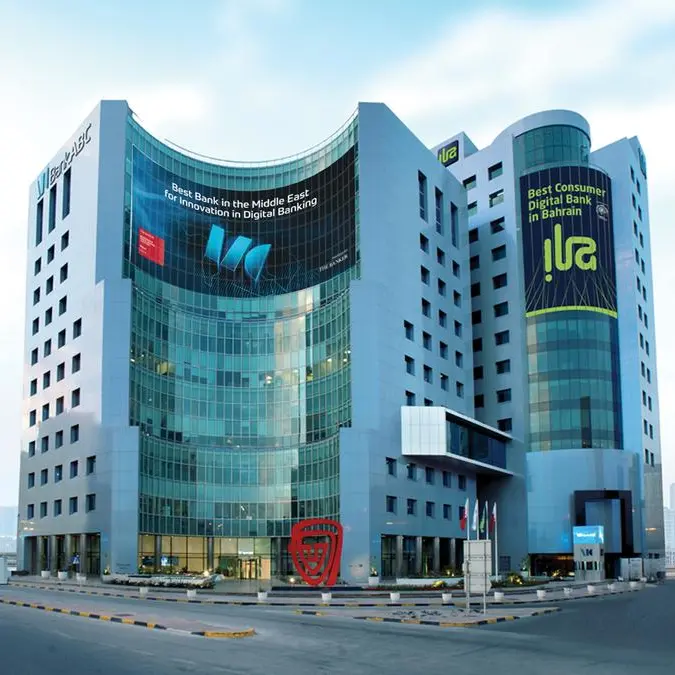PHOTO
French banking giant Société Générale Group (SocGen) will sell its subsidiaries in Congo, Equatorial Guinea, Maurita- nia and Chad to two African banking groups.
The French company will sell all its shares in Société Générale Congo (currently 93.5%) and Société Générale de Banques en Guinée Équa- toriale (currently 57.2%) to Vista Group and its shares in Société Générale Mauritanie (currently 95.5%) and Société Générale Tchad (currently 67.8%) to Coris Holdings.
Burkina Faso-based Coris Holdings already has sub- sidiaries in nine West African countries and Coris Bank In- ternational is the third big- gest bank in francophone West Africa.
The sale is expected to complete by the end of 2023 but is subject to approvals by the boards or governance bod- ies and by regulators.
Simon Tiemtore, Chair- man of Vista Group said:
“Our agreements to acquire Société Générale’s banks in Congo Brazzaville and Equa- torial Guinea add two key Central African countries to our portfolio and represent key progress in our expansion strategy, which is to become a pan-African financial services group with operations in 25 countries.”
Vista Group is owned by US private equity fund Lilium Group. Idrissa Nassa, Presi- dent of Coris Banking Group, said: “This is a highly strate- gic agreement for the group which will mark its entry into Central Africa and Maurita- nia.”
The two groups have made commitments to take over all activities operated by Société Générale in these countries, all the clients’ portfolios and all employees.
In a press release, SocGen says it has also launched a strategic review of its 52.3% stake in Union Internationale de Banques (UIB), its subsidi- ary in Tunisia. According to the announcement: “In this context, a non-exclusive pro- cess has been initiated.”
SocGen says: “Africa is a geography with growth po- tential, where the group has built a historic presence and intends to focus its resources on markets where it can posi- tion itself among the leading banks, in synergy with the group’s other businesses and with a critical size, allowing a satisfactory and sustainable contribution to value creation.
“The group also remains fully committed to supporting its large clients on the African continent, through its global corporate and investment banking franchises.”
Barclays Plc and Atlas Mara Ltd are also divesting some or all of their African banking operations.
Smaller banks are also considering cross-border ex- pansion. In July 2023, Mustafa Rawji, CEO of DRC’s Rawbank, said: “We are considering ac- quisitions of banks in neigh- bouring countries where there is a strategic sense to the ac- quisition to leverage on our existing customer base.”
Uganda’s Centenary Rural Development Bank has won a banking licence in Malawi.
FBC HOLDINGS ACQUIRES STANCHART, ZIMBABWE
FBC Holdings (FBCH), list- ed on the Zimbabwe Stock Exchange, has agreed with Standard Chartered PLC (Stanchart), headquartered in London, to buy all the shares in Standard Chartered Bank Zimbabwe Limited for cash, subject to the approval of reg- ulators including the Reserve Bank of Zimbabwe.
FBCH is a leading finan- cial services group whose offerings include commer- cial banking, insurance, re- insurance, micro-finance, stockbroking and mortgage finance.
FBCH will also buy an en- tire beneficial interest in the Africa Enterprise Network Trust, which owns a 20.7% shareholding in property de- velopment firm Mashonaland Holdings, among other assets.
The company will also buy Stanchart’s custody services business, in which it pro- vides services to institutional investors on the Zimbabwe Stock Exchange. According to local reports, the deal could be worth $140m and FBCH has already deposited $34m into an escrow account.
Sunil Kaushal, the Regional CEO, Africa & Middle East at Standard Chartered Bank, said: “The agreement with FBCH for the sale of Stand- ard Chartered’s business in Zimbabwe is in line with the bank’s global strategy, aimed at achieving operational effi- ciencies, reducing complexity, and driving scale.
“This strategic decision al- lows us to redirect resources within the Africa and Middle East (AME) region to areas with significant growth po- tential, ultimately enabling us to better support our clients.”
Dr John Mushayavanhu, Group Chief Executive of FBC Holdings, said “Standard Chartered Bank’s clients can expect the continued provi- sion of seamless trade finance and cross-border payments by FBCH. We welcome Stand- ard Chartered’s employees to the FBCH group. Ultimately, the acquisition will further enhance shareholder value.”
Standard Chartered decided in April 2022 to divest from Lebanon, Angola, Cameroon, Gambia, Sierra Leone, Zimba- bwe and Jordan and to close some business units in Côte d’Ivoire and Tanzania. FBCH was the winning bidder in Zimbabwe.
ORABANK SOLD TO VISTA GROUP
Vista Group, owned by US- based Lilium Group, has agreed with a range of pri- vate equity and other funds to acquire 61.4% of Oragroup S.A, which is the holding com- pany of Lomé-based Orabank, which operates in 12 West and Central African countries.
The combination of Vista and Oragroup will create a Tier 1 banking group covering 16 countries with more than 270 branches and represent- ing total combined assets of more than $10bn, according to a press release.
Simon Tiemtore, Chair- man of Vista Group said: “The acquisition of Oragroup is a significant milestone in our growth strategy. Vista is now well positioned to support the development plan, trade and infrastructure investment of three fast-growing major eco- nomic zones, the West Afri- can Monetary Zone (WAMZ), the West African Economic and Monetary Union (WAEMU) and the Central African Eco- nomic and Monetary Com- munity (CEMAC).”
The sellers are US private equity fund Emerging Capi- tal Partners, private investors group Envol Afrique, head- quartered in Bamako, and de- velopment finance institutions Belgian Investment Compa- ny for Developing countries (BIO), Deutsche Investitions- und Entwicklungsgesellschaft (DEG) and France’s Proparco. The transaction is subject to regulatory approvals.
Tiemtore had set up Lilium Capital private equity with of- fices in Washington DC and Port Louis, after working at the African Export-Import Bank (Afreximbank) as Group Head of Corporate Finance and Advisory Services.
PZ CUSSONS SEEKS TO BUY OUT NIGERIANS
International consumer goods business PZ Cussons, head- quartered in Manchester, UK, has offered to buy out minor- ity shareholders in PZ Cus- sons Nigeria Plc (PZCN) for N21 ($0.028) per share. On 5 September it informed the Ni- gerian Exchange (NGX) and the public.
If successful, the deal would mean the company is delist- ed from the Nigerian bourse, where the share was priced at N19.60 when trading closed on 12 September, after some years of increase, when it had peaked at N24.00 on 3 July.
PZ Cussons said: “The group believes the offer to be attractive for the minority shareholders of PZCN, particu- larly given the recent macro- economic developments and foreign exchange challenges.”
It has offered to pay £22.8m ($28.7m) for the 26.7% stake held by minority shareholders. It proposes to fund the trans- action from existing cash bal- ances held in naira. PZ Cuss- ons said: “The Group believes the transaction will signifi- cantly simplify and strengthen its business in Nigeria, putting in place a sustainable struc- ture and platform to maximise long-term growth and value.”
Assets within PZ Cuss- ons Nigeria Plc comprise the portfolio of family healthcare brands such as Premier and Morning Fresh, and a Haier- Thermocool (fridges, freezers) joint venture with Haier.
PZ Cussons has been pre- sent in Nigeria since 1899 and expects Nigeria to remain an important market for the group for many years to come.
The deal will need approv- al from the board of PZCN, shareholders at a general meeting convened by the Fed- eral High Court, and regula- tors including the Securities and Exchange Commission. PZ Cussons has also said it is subject to prevailing market conditions.
PZ Cussons originated in Sierra Leone in 1884 and has operations in Europe, North America, Asia-Pacific and Af- rica. The majority of the busi- ness is in the UK, Nigeria, In- donesia and Australia. It owns brands including Carex, Childs Farm, Cussons Baby, Impe- rial Leather, Original Source, Premier, Sanctuary Spa and St. Tropez and employs 2,500 worldwide.
AIRTEL UGANDA AIMS FOR $215M IN IPO
Telecom company Airtel Uganda has launched a share offer on the Uganda Securi- ties Exchange in which parent Bharti Airtel Uganda seeks to sell Ush800bn ($215m) or 20% of the shares.
The initial public offering (IPO) opened at 10am on 30 August and will close at 4pm on 13 October. The shares, with par value Ush1 each, are of- fered at Ush100 each.
The target is to announce results on 30 October and then list on the Uganda Securities Exchange (USE) on 31 October. The lead sponsoring broker is Crested Capital and lead advi- sor and lead receiving bank is Absa Bank Uganda Limited.
It will be the second telco on the USE after MTN Uganda raised Ush535.3bn ($150m), in Uganda’s biggest IPO to date, and then listed on 6 Decem- ber 2021. MTN had also offered 20% of its shares but only achieved 60% of the offer. It still more than doubled the value of shares listed on the bourse.
Airtel Uganda is obliged to list in terms of Article 16 of its National Telecom Operator (NTO) licence from the Uganda Communications Commission (UCC). This lasts for 20 years, effective from July 2020. Tel- ecoms sector policy, regula- tions and guidelines require the listing of all its shares on the USE, and the UCC requires this to be complete by 16 De- cember.
According to the prospec- tus: “The Offer seeks to en- hance the Company’s profile across the continent and es- tablish a source of future cap- ital to support its extensive growth strategy... The Offer gives preference to Ugandan investors to own a share in the Company and participate in its future growth.”
The prospectus says that Airtel Uganda had over 13.8m active subscribers at 31 De- cember 2022 and a 47% mar- ket share. Revenue is up to Ush1.594trn ($429m) for the year to December 2022 from Ush1.505trn the previous year.
Earnings before interest, tax, depreciation and amorti- sation were Ush888bn in 2022, up only a little from Ush884bn a year before. Profit after tax dropped from Ush393bn in 2021 to Ush326bn, and pro forma earnings per share were Ush8 after falling from Ush10 per share.
The company forecasts that revenue will grow by 16.6% in 2023 to Ush1.859trn, driven largely by the voice and data segments both through in- creased usage and through ac- quisitions to grow the number of clients.
“Voice revenue has been projected to grow by 7.0% year on year, supported by custom- er base growth of 17.1%. Data revenue has been projected to grow by 33.6% year on year, with a contribution to overall revenue increasing to 39%.”
Rising fuel prices contrib- ute to an expected 13.5% in- crease in operating expenses, including regulatory charges, mainly driven by distribution and networks expansion. The company is expected to spend Ush202bn on new sites, par- ticularly for the data network, and this is part of Ush244bn of planned capital spending.
Profit after tax is expected to be Ush457bn or Ush22 per share. The net asset value was stated as Ush123.9bn on 29 August (Ush3.10 per share) and is expected to fall to Ush67.1bn by 31 December (Ush1.70 per share).
In the past, it has paid high dividends. The dividend payout ratio of net profit after tax for the year was 93% in 2020, 99% in 2021 and 110% in 2022.
The prospectus says it will continue with quarterly divi- dend payments and expects to pay out some USH500bn in the financial year ending 31 December 2023. New share- holders allotted and registered by 30 October will be eligible for the third-quarter dividend payout.
In terms of a new dividend policy approved in July, the dividend pay-out ratio will be 95% of retained earnings or net profit after tax, whichever is higher, on the basis of au- dited financial statements for the full financial year.
Bharti Airtel Uganda, which owned nearly 100% of the shares before the offer, will bear the offer expenses of Ush25.8bn ($6.9m) including commission if the offer is fully subscribed.
The company that would later become Airtel Uganda, Celtel Uganda, was incorpo- rated in 1992. It became Zain Uganda before Bharti Airtel arrived in 2010, acquiring its operations. The business is now a subsidiary of London- listed Airtel Africa, which op- erates in 14 countries and is Africa’s second-largest mobile operator. Bharti Airtel is the ultimate owner and claims to be the second-largest telecoms operator globally.
The minimum share ap- plication is 2,500 shares and thereafter applications should be in 500 shares. Applications can be made using a form available in the prospectus, or via the USE Easy-Portal or a platform called m-IPO. Funds are deposited at a receiving bank or authorised selling agent or transferred from an Airtel Money wallet if applying through m-IPO. There is only one class of shares.
IFC LISTS ZAMBEZI BOND
The International Finance Corporation (IFC) has suc- cessfully launched its second Zambezi Bond, a five-year amortising bond valued at 193.2m kwacha ($9.4m), and listed it for trading on the Lu- saka Securities Exchange.
The aim is to support de- velopment of the capital market and to provide local currency finance for the IFC’s investments in Zambia.
It is the first floating rate bond issued by the IFC in Zambia, and pays a yield that is 50 basis points (0.5%) below the rate for 182-day Zambian
Treasury Bills. Being able to achieve lower interest rates than the government bills is
Based on the excellent global credit rating of the IFC, part of the World Bank Group and the largest global develop- ment institution focused on the private sector in emerging markets.
The bond issue was over- subscribed. Absa Bank Zam- bia was the lead arranger and First National Bank (FNB) Zambia the co-arranger, while the sponsoring broker was Stockbrokers Zambia.
John Gandolfo, IFC Treas- urer and Vice-President, said: “Deep and liquid domestic capital markets are essential to expanding access to much- needed local currency finance for key sectors in the econo- my. Scaling up local currency financing is a key priority for the IFC and we’re delighted to be back in the Zambian mar- ket.”
Jason Quinn, Absa Group Chief Financial Officer, com- mented: “The successful bond issuance is a testament to the credit quality of the issuing entity, IFC. This transaction also demonstrates the criti- cal role that the private sector plays in helping the country’s capital markets and driving economic growth.”
In 2013, the IFC had placed the first bond to be issued by a non-resident issuer on Zambia’s securities exchange when it issued a four-year bond worth 150m kwacha (then $24m), which was the first issuance under the pan- African domestic debt pro- gramme. The bond was issued at par (face value) and carried a yield of 15%.
It is part of the IFC’s reg- istered Medium Term Note programme in Zambia, which allowed the IFC to is- sue bonds for up to 2.5bn kwacha ($121.6m now). The IFC launched its Pan-African Domestic Medium-Term Note Programme in May 2012, with a focus on Botswana, Ghana, Kenya, Namibia, Rwanda, South Africa, Uganda and Zambia. It has issued bonds in 59 currencies. n
KENYA LEADS IN CARBON CREDITS
Kenya is Africa’s leader in benefitting from carbon cred- its, as highlighted in early September, when the country successfully hosted the Af- rica Climate Summit. Cur- rently it is a $2bn market and is forecast to grow five times by 2030.
Ali Mohamed, the Kenyan President William Ruto’s spe- cial envoy for climate change, said: “There is massive in- terest. We have 25% of the African market (for carbon credits) in Kenya, and it’s our ambition to expand this.”
A single carbon credit rep- resents one tonne of carbon dioxide removed or reduced in the atmosphere. Global com- panies which emit quantities of carbon dioxide buy credits and the funds are used to pay for activities including renew- able energy, planting trees to remove new carbon, or even protecting forests to keep car- bon in the soil and trees and prevent it being released.
This represents local in- vestment and jobs, including in arid rural areas in Kenya where there has been little development and locals had been cutting trees and dam- aging wildlife habitats for fuel, including charcoal.
One example is the Kasi- gau Corridor REDD+ project, run by US company Wild- life Works. Since its launch in 2011, it has avoided 22m tonnes of CO2 emissions and currently funds water, educa- tion and health, as well as 400 local jobs.
The market is still fairly unregulated globally and Af- rican governments are aiming to secure benefits. In August, Kenyan’s National Assembly passed legislation to require at least 40% of funds for carbon projects based on land to be spent with local communities and 25% for projects work- ing in watery environments including mangrove forests. This still needs to be approved by the Senate and the Presi- dent.
Zimbabwe has announced it will tax carbon projects at 30% of revenue for the first 10 years. Project developers need to ensure that at least 25% of their remaining 70% revenue goes to community projects.
© Copyright IC Publications 2022 Provided by SyndiGate Media Inc. (Syndigate.info).





















